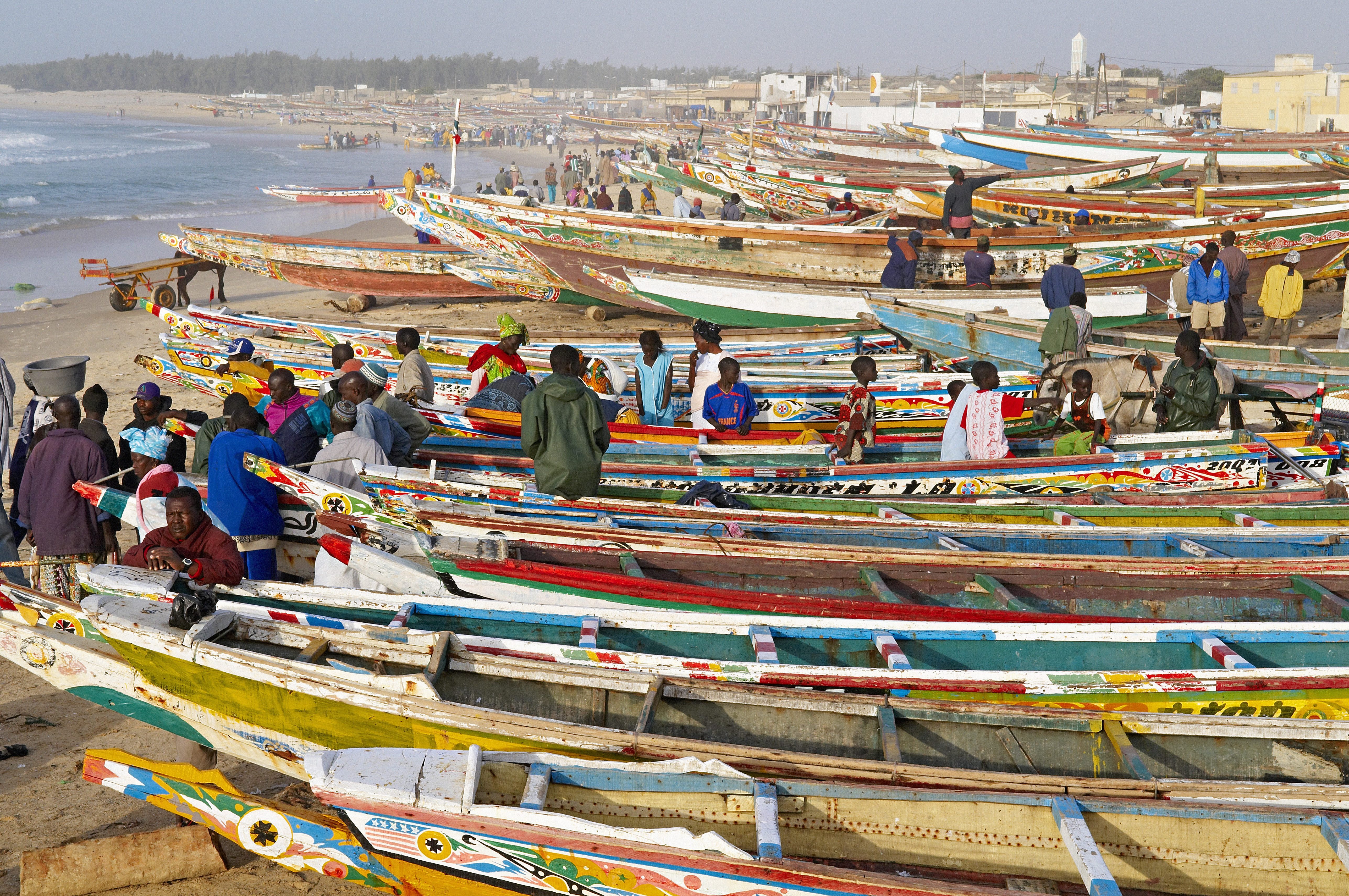WEST AFRICA
Cooperation, but not at any price

Fischereihafen Kayar, der größte Fischereihafen Senegals.
© picture alliance / robertharding | Bruno MorandiForeign Minister Baerbock travels to Senegal, the Sahel Alliance meets in Berlin. Germany wants to maintain a presence in the region after the troop withdrawals. Why this is the right thing to do.
Berlin and West Africa are engaged in lively diplomatic exchanges these days. German Foreign Minister Annalena Baerbock is traveling to Senegal and Côte d'Ivoire on Monday and Tuesday. The German Minister for Economic Cooperation and Development, Svenja Schulze, will receive the 18 members of the Sahel Alliance in Berlin on Tuesday.
Germany is reaching out its hand - at a time when it is continuing to withdraw militarily. Last week, Defense Minister Boris Pistorius surprisingly and almost without comment announced the withdrawal of the remaining German troop contingent from Niger.
The Bundeswehr, together with the Italians, was supposed to maintain the last Western military presence there as a military advisor and builder of a hospital in Niamey.
Three coup countries go their own way
Anyone dealing with the Sahel states cannot avoid global security policy. And the competition between Western and Eastern players, above all Russia.
At the same time, military junta members who initially promised more regional sovereignty, more economic independence and a “transition” are ruling the region. Instead, they are following in the corrupt and undemocratic footsteps of their predecessors, whom they previously fought against.
This is what has happened in the three countries that have set themselves apart from the West and the rest of the region: Mali, Burkina Faso and Niger, which have already turned their backs on the West African economic association Ecowas in 2023 with the Alliance of Sahel States (AES).
They are determined to go their own way. This became clear once again last weekend at the first AES summit in the Nigerian capital Niamey. They transformed the alliance into a confederation of Sahel states.
It comes as no surprise that the decision to withdraw from Niger was taken in Berlin on the very same weekend. Niger had denied the German troops and their advisors the usual protective instruments, such as immunity for its soldiers, which would have made a German deployment justifiable.
More autonomy from the West
The leadership in Niamey is thus making it clear that its flaunted desire for autonomy will be followed by action. One can only imagine the diplomatic back and forth that took place before the Federal Ministry of Defense pulled the ripcord.
At the same time as the German-Nigerian tug-of-war and the founding of a confederation of the three Sahel countries, a summit of the Economic Community of West African States, Ecowas, took place in Nigeria. At the top of the agenda: how the organization should deal with the three breakaway Sahel states.
The Economic Community is a partner with no alternative
For 50 years, the Economic Community has stood for regional integration, free trade in goods, visa-free travel and regional security in 15 West African countries. Now reduced to 12 member states, it may be in need of reform, but there is no alternative as a political partner and player for peace and prosperity.
This is also the view of the new Senegalese President Bassirou Diomaye Faye, who was appointed at the summit together with his Togolese counterpart as Ecowas mediator in dealing with the renegade trio.
Catapulted to power in the spring as a symbol of the anti-establishment and with a pan-African, sovereigntist approach, the young Senegalese president, unlike the AES, has placed his political and economic focus on the region rather than against it.
Faye warns that the time has come to redefine relations with the West while at the same time reforming the ageing economic and security association Ecowas. More regional sovereignty is not possible without, but with a strong organization.
Baerbock first western foreign minister in Dakar
West Africa has immense potential. It offers much of what humanity needs today: endless energy, rare earths, coveted minerals, a young population willing to work. Land, lots of land, which under normal circumstances would allow independence of food supply.
The stable coastal states of Senegal and Côte d'Ivoire, with their double-digit growth rates recently forecast by the International Monetary Fund for 2025, have a special role to play here.
This has also been recognized by the German government, which is one of the first Western partner countries to send its foreign minister to the new Senegalese government. A sign of appreciation, trust and recognition for the exception sénégalaise, the Senegalese exception, as the country proudly claims, which has overcome every democratic crisis freely and fairly since its independence.
If the treasures, opportunities and needs of West Africa are not to be left to other players who threaten the West and its values not only in Europe but also on the African continent, German engagement and partnership on an equal footing and with an outstretched hand are more important than ever.
